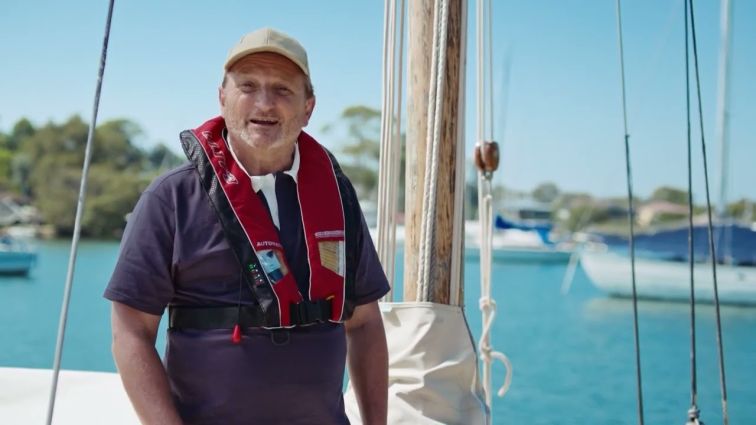Preparing to go on the water
As the skipper, you're responsible for safety of the vessel and people on board. Be prepared to keep everyone safe and enjoy time on the water.
Safety basics
Carry enough lifejackets
Wearing a lifejacket can save your life. Make sure your vessel is carrying enough approved lifejackets for everyone on board. They must be in good condition and quick and easy to access.
Always wear a lifejacket while on the water. This means that you'll be more prepared for unexpected events, such as suddenly falling into the water.
The rules for wearing a lifejacket depend on your vessel, where you are and the level of risk.
Know the rules
Before you go out, make sure you know the rules and regulations for using NSW waterways. Key rules to help you stay safe and avoid collisions including:
- keeping a proper lookout for hazards
- knowing who you must give way to and when
- identifying and obeying navigation marks, lights and sounds
- travelling at a safe speed and keeping a safe distance between your vessel and other people, vessels and objects
- staying under the legal limit for alcohol
- knowing the rules for towing a person on the water and towing a trailer on the road.
Check the weather
Always check the weather before you head out. Be aware of warnings, marine conditions, storms, winds, waves and tides. This can make the difference between an enjoyable day and an emergency situation. If in doubt, don't go out.
Let someone know
Before you leave, contact a friend or relative or use your marine radio to log on with a coastal radio base. Tell them:
- where you're going
- your estimated return time
- your vessel details
- how many people are on board.
Take extra care to let someone know if you are going out alone.
Report in if you extend or change your trip.
You can also use the MarineRescue app to log on and log off with Marine Rescue NSW.
Know what to do in an emergency
Being on the water can be unpredictable and dangerous. Be prepared for an emergency or incident, and know what to do and who to contact if you run into trouble.
If you're involved in or witness an incident, you must always stop and give as much help as possible. Depending on the severity of the incident – for example, if someone is injured – you may need to give information to authorities.
Marine Rescue NSW provides important services, including safety education, marine radio communication, and emergency search and rescue services.
Preparing your vessel
Check your vessel
Check your vessel is in good working order, including the engine and lights. Check you have all the correct equipment on board before you leave home or launch your vessel.
If your vessel is registered, check the registration has not expired.
Check all hatches can be opened from both the inside and outside of the vessel. Keep all hatches unlocked while the vessel is underway.
Anyone driving your vessel should have the skills and experience to handle the vessel on the waterway you're using.
Vessel suitability
Check your vessel is suitable for the waterways you want to travel on. For example, if the vessel is designed for enclosed waters, it may not suit open waters or along the coast where waves are larger.
Boats are designed and built for different purposes. There are various hull shapes to suit different water conditions and loads.
The design, construction, stability, flotation and maintenance will all be factors in the safety and performance of your vessel.
The right size boat will depend on the number of people you intend to carry, the amount of equipment, provisions and goods you plan to load into it, and the type of water conditions you expect to experience.
Boats fitted with appropriate internal buoyancy, such as foam, will remain afloat when capsized or swamped. This improves the chances of rescue and survival in the event of an incident, particularly in isolated areas or offshore.
Have the correct safety equipment
Check you have the correct safety equipment on board for where you're going and your vessel type.
Make sure every item is in good condition and easy to access. Everyone on board should know its location and how to use it.
Planning your trip
Plan where you want to go
Plan where you're going and know how long the trip will take. Be aware of any special waterways or designated areas. Check the location of harbours, ports and potential refuges from bad weather.
Take extra care in cold water, especially alpine waters, where your risk of cold shock and hypothermia are increased.
Build your experience by starting out on calm, quiet waterways. Take a more experienced person with you, if possible.
Make sure you have enough fuel. Plan to use a third to get there, a third to get home, and have a third in reserve for unexpected events.
Make sure you have a compass and up-to-date chart (or map) for the waterways you will be using, especially if you're going out on open waters.
You must have a chart or map if you plan to go out on open waters.
Prepare children
If you're taking children out on your vessel:
- Make sure they have a lifejacket and are wearing it when required.
- Teach them emergency procedures and drills, such as what to do if they fall overboard or the vessel capsizes.
- Show them where the safety equipment is, and teach them how to use emergency items, such as the marine radio, EPIRB and flares. Make sure they understand they must only use them in an emergency.
- Show them how to get in and out of dinghies and small boats while keeping them stable.
- Make sure they do not have any part of their body out of the vessel when it's underway.
- Teach them about keeping a proper lookout and a safe distance from other vessels.
- If you're planning to tow, make sure they know the rules for towing people aged under 16.
- Carry everything they need to be prepared for all types of weather.
- Consider the risk of seasickness, especially if you're going out on choppy water.
- Teach children about lifejackets and sunscreen.
Using good judgement
When you're the skipper it's your responsibility to keep everyone safe. That means being prepared and using good judgement when you're out on the water.
Judgement is about making good decisions about safety-related factors on the water that interact with each other – for example, your speed, other vessel traffic, your vessel's capabilities and weather conditions.
Good skippers can recognise common on-water risks and apply good judgement to manage them safely.
Boater judgement usually gets better with experience, but even the most experienced skippers can face unexpected challenges out on the water.
- Make sure your vessel is suitable for the conditions.
- Know your limits and avoid taking risks.
- Regularly check the weather before and during your trip. If in doubt, don’t go out.
- Ensure you have enough safety equipment – including lifejackets – for everyone on board, and ensure it's in good working order.
- Log on/off with Marine Rescue NSW, and tell someone where you’re going and when you’ll return.
- When you're on the water, always keep a proper lookout. If that becomes difficult or stressful it probably means you're going too fast for the conditions. Slow down and observe.
- If you're unsure how to manage any on-water risks, consider slowing down and changing your location such as moving to a protected waterway.

Good judgement on the water
Safe boating when you're older
Even the most experienced boaters can face unexpected risks on the water. You may have skippered a boat more times than you can count, but as you age, you become more vulnerable to safety incidents due to changes in your health and mobility, including the ability to quickly react to sudden hazards.
People aged 65+ are over-represented in boating trauma, accounting for about 1 in 5 fatalities. It's important to take extra care so you can keep enjoying your time on the water safely.

Safe boating when you're older
- Know your limits and the limits of your vessel. If in doubt, don't go out.
- Always wear a lifejacket and head out with a mate when you can.
- Use a checklist to keep track of important routines, including safety checks and equipment.
- Ensure your boat is suitable for your ability and the conditions.
- Customise your boat to your needs – this could include more handholds, non-skid surfaces, boarding ladders and other equipment.
- Watch your balance – be careful getting in and out of dinghies and tenders or when moving about on board.
- Watch out for signs of fatigue, and stay well rested – share the helm, as fatigue affects everyone.
- Tell someone where you're going and your estimated time of return. Log on and off with Marine Rescue NSW via app, marine radio or phone.
Related apps
Image

Deckee
Stay safe and informed on the water. Get official alerts and information from maritime authorities. Explore crowdsourced reports from the boating community. Check the weather conditions and forecasts near you.
